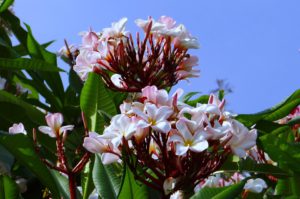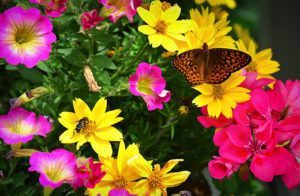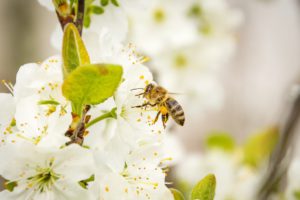7 Effective Ways to Sustainable Gardening

These days more and more people are getting involved on the great outdoors by working the soil in an effort to reap a good harvest whether it be growing food crops (fruits, vegetables, herbs) or growing a flower garden, or maybe a combination of both but whatever you’re deciding on growing one thing is for sure an that is making the most out of your time seeking to reap the rewards of your efforts.
Creating a sustainable garden can make this possible keeping you ahead of the game giving you great results but in order for this to happen a well-thought-out plan must be put in place. This plan or blueprint is the road map that will guide you in having much success with your garden.
Below we will be looking at such a blueprint as we move forward in the hopes of creating and maintaining a sustainable garden.
Your blueprint to garden success

- Designing your garden
- Using native plants
- Include what you have
- Weed management
- Water management
- Building healthy soil
- Save seeds
- Going natural
- Don’t use harmful pesticides
- Plant propagation
- Using mulch
- Attraction pollinators
- Mulch substitute
- Using beneficial insects
- Recycle material where possible
- Grow your own food crop
- Crop rotation
- Garden lawn management
Designing your garden
There are so many ways of creating a garden design but what we want is not only to create a garden that’s beautiful but one that will be easy to maintain while saving us a few bucks. This is why creating a sustainable garden is the way to go. With this type of garden design, you can’t go wrong because of the many benefits that are involved.
Using native plants

To have much success with a sustainable garden it’s best to install garden plants that are native to your zone, trying to fit plants into your landscape that’s not native will cause you in the long run. Native plants will also encourage pollinators to your garden which is an added benefit.
Including what you have already
When constructing your garden it’s good to leave what’s there as long as it ties in with your garden design. For example, a big tree or some hedges that are growing wild can remain as you create your design around these plant materials.
Weed management
Weeds are not only an eyesore but also encourages disease, garden insect pest and will compete with your garden plants for water, nutrients, and sunlight. If weeds are allowed to grow will eventually take over your garden.
Putting a plan in place such as creating a schedule will help to win the war on weeds, for example, a great way to stay on top of weeds is to keep an eye on them when they first emerge then proceed to remove them.
Catching weeds when they first emerge is easier to remove with a hoe by lightly tilling or cultivating the soil. Avoid the use of herbicides especially when working near food crops and other garden plants.
However, herbicides may be used in areas where no plants are present or where plants may be a great distance from the garden area. Caution must be taken such as wearing the proper PPE, reading, and following the label for the proper mixture.
Don’t spray herbicides on a windy day which can drift of and get on plants that may be nearby. When spraying the nozzle should be held close to the ground and near the weed before the herbicide is released.
Water management
All plant life requires water no matter their preference, therefore it’s important that we practice proper water management. A great way to practice water management is by collecting water in rain barrels, installing low maintenance plants that require very little moisture, ensuring that your outside pump is in good repair or not leaking, if you have an irrigation system the system should be in good repair with no broken pipes or broken sprinkler heads.
Installing a micro-irrigation that is also known as a low volume or localized irrigation releases water in small amounts at low pressure can also help in water conservation.
Building healthy soil

Growing a sustainable garden means ensuring that your plants are healthy and thriving, garden soil is at the root and one of the key components of having much garden success. Starting a compost pile is a great way to build healthy soil. Building this type of soil will not cause you much at all except for kitchen scraps and a bit of your time which is not much for a great return.
Seed saving
Seeds that are produced in your garden can be saved and planted, this is a great way again to save and to have an almost endless supply of your favorite food crop or garden plants. Also, put a smile on your neighbors or families face by giving them a few of these seeds also.
Growing natural
An organic garden is all-natural with no man-made chemicals or fertilizers, this way of growing food crops is healthy. Can you imagine eating fresh from the soil without food contamination?
Avoid using harmful pesticides
Many persons may look at pesticides as a quick fix in tackling garden issues such as insect pests but if the truth could be told the use of pesticides especially if misused can cause more harm than good. I understand that you want to rid your garden of those pesky insects but what research has shown us is that the use of these harmful chemicals can drift of contaminating the air along with killing beneficial insects.
It is better to use organic pesticides or better yet encouraging beneficial insects into your garden which is known as biological control that we will be discussing a bit later.
Plant propagation
Plant propagation is a great way to increase the number of plants in your garden without having to pay extra ($) except for your time but it’s a great investment and savings because as they say ” a dollar saved is a dollar earned”
The benefit of mulch
There are so many benefits with the use of mulches besides beautification, other benefits include suppressing weeds, helping to conserve water, adds nutrients to the soil as it decomposes, aids in keeping the soil temperature cool also acts as an insulator in protecting the roots in extremely cold weather.
Substitute for mulches
Grass clippings and leaves can be substituted in the place of mulch, as long as your grass clippings are weed and disease-free can be placed around plants and along garden beds so the next time you cut your lawn remember this material can be used for mulching. As this natural organic (grass clippings) breaks down will add nutrients to the soil.
Leaves can also be used for this seem purpose, what I love about these natural organics is they are produced by your garden and can be recycled back into your garden giving you savings.
Attracting pollinators

Attracting bees and other wildlife to your garden is a great way to introduce pollinators that will be of good help in assisting garden plants that’s why it’s a good practice not to use harmful pesticides. A great practice mentioned earlier is also installing native plants in your garden that will attract them. These beneficial insects also help in bringing balance to our ecosystem.
The presence of beneficial insects
A safe practice that has been around for some time and has proven to be of great benefit is the use of beneficial insects to control garden insect pests. This method of control is all-natural and is known as biological control.
These beneficial insects that are known as the good bugs feed or make a meal out of garden insect pests, the process by which garden insect pests are eliminated may be slow but at least it is safe for humans, pets, and wildlife. For more on beneficial insects refer to the category section.
Recycled materials
Recycling what you have can help in saving a few dollars, for example, if you have old car tires why not spray them or paint them another color, place them in a location where you are thinking of installing plants fill the tire with good garden soil and install your plants.
There are so many ways to recycling that can save you a ton of money, thinking outside of the box with recycled material and reusing can be so much fun.
Growing your own food crop
With a sustainable garden, you can grow your food crops, just think of it vegetables or herbs or even both grown by your hands in your backyard garden. This is a great way of growing your food in a healthy way while saving a few dollars. For more on this gardening, method, refer to the category section.
Crop rotation
Crop rotation can be of great benefit for example crop rotation will increase nutrients availability, reduce soil erosion, increase soil’s health, limits the concentration of garden insect pests, improve soil’s structure and reduce or help to manage diseases. I would say that with these listed benefits I would also implement this practice.
Garden lawns
The presence of a garden lawn that is well manicured and growing healthy is a sight to behold. I have both seen and worked on lawns of this sort that was just simply amazing.
A Garden lawn, however, can become pretty expensive to maintain, a great way to have a lawn that’s sustainable requires keeping it healthy which will discourage weeds, disease, and insect pests.
Even with the best-kept lawns, these issues may still present themselves but not in a way when a lawn is neglected or not properly maintained. A great way of having a sustainable garden depending on your lawn size is to have part of your lawn removed replacing with low maintenance plants. This way your maintenance budget for your lawn will be less giving you savings which is a HUGE Win for You,
The final word on how to make a sustainable garden
With all that has been said I am sure by now that you are all excited about starting your very own sustainable garden. With these garden types you can have the best of both worlds which is a big win for you so why not follow these simple but yet effective steps. It calls for some work however but it is worth the investment as it pays off in big ways.
About the author
Norman loves being in the garden, both at home and for his job....
he is 'Natures Little helper' being outdoors, growing his vegetables and flowers from an early age.
Now having spent over 22 years in the profession he want to give some of his knowledge to others...
his vast array of hints and tips you will find scattered over this site will help you no end growing plants in your garden.

This is really great to see here and I honestly value everything that has been shred here so far.to be honest, anyone would agree with you that gardening is a long process but when fruitful, it becomes a very joyful and pleasing period. Hence, sewing this here actually make so much sense to see and I really fancy this here. Thanks so much for your helpful tips and guide
Thank you also for your input.
Hello there! Thank you very much for dropping this article on how to make a sustainable garden. I’ve gone through it and it’s a very detailed article and contains valuable information I should hold on to because I’m planning on making a garden. I’m going to bookmark this and come back to these 7 tips because they appear really helpful and useful when I want to make a garden. Thank you
Thanks again for your visit and kind words, hoping you have much garden success.